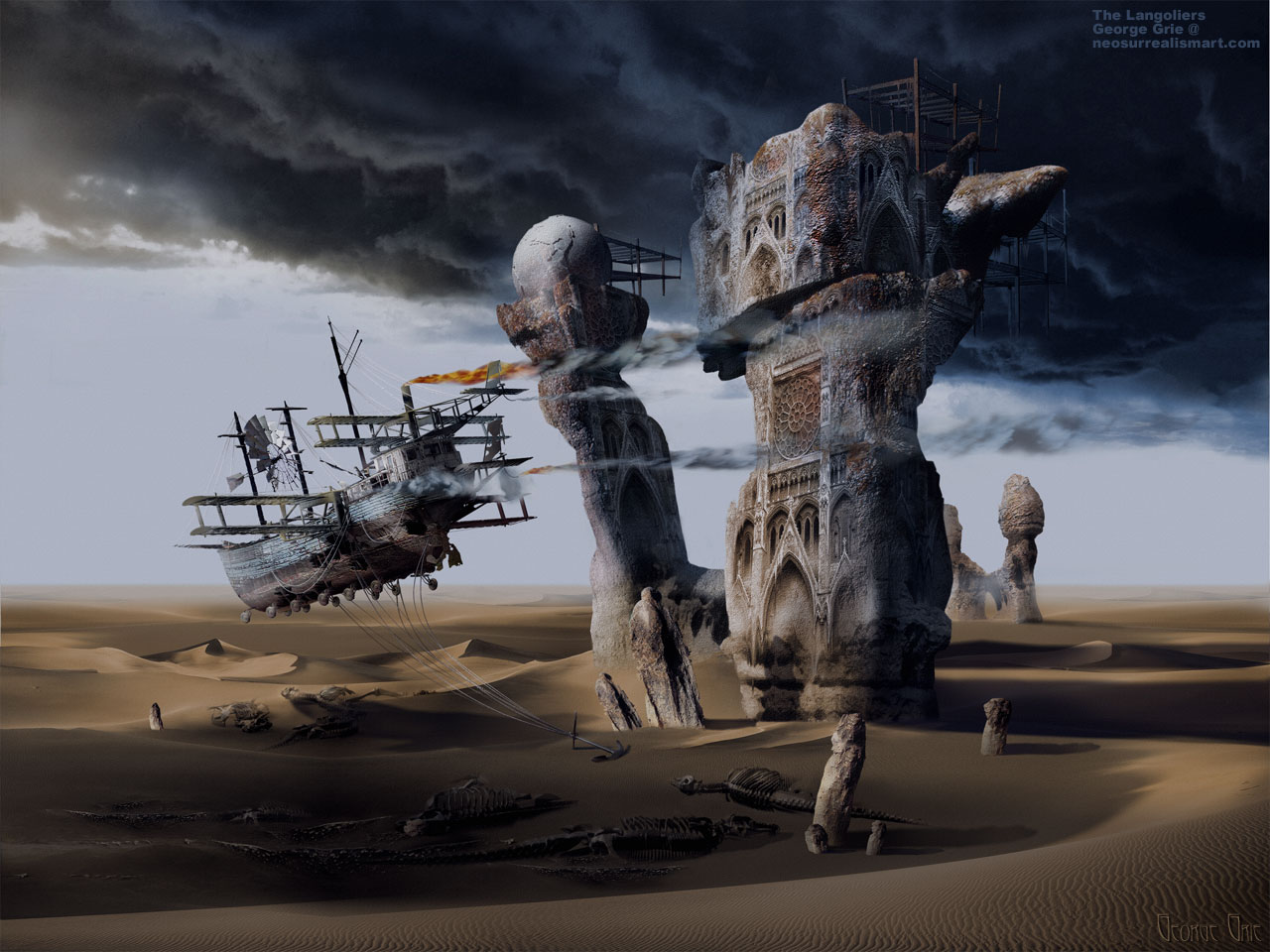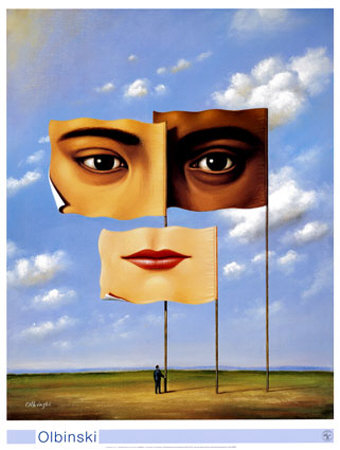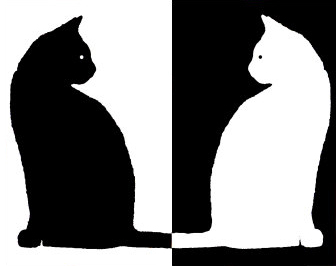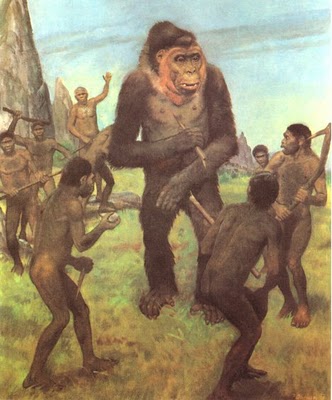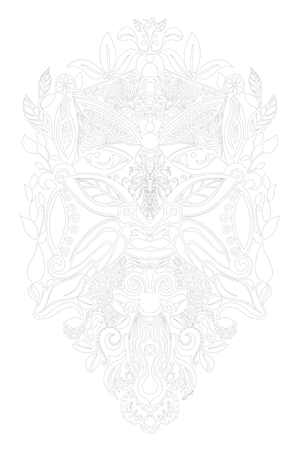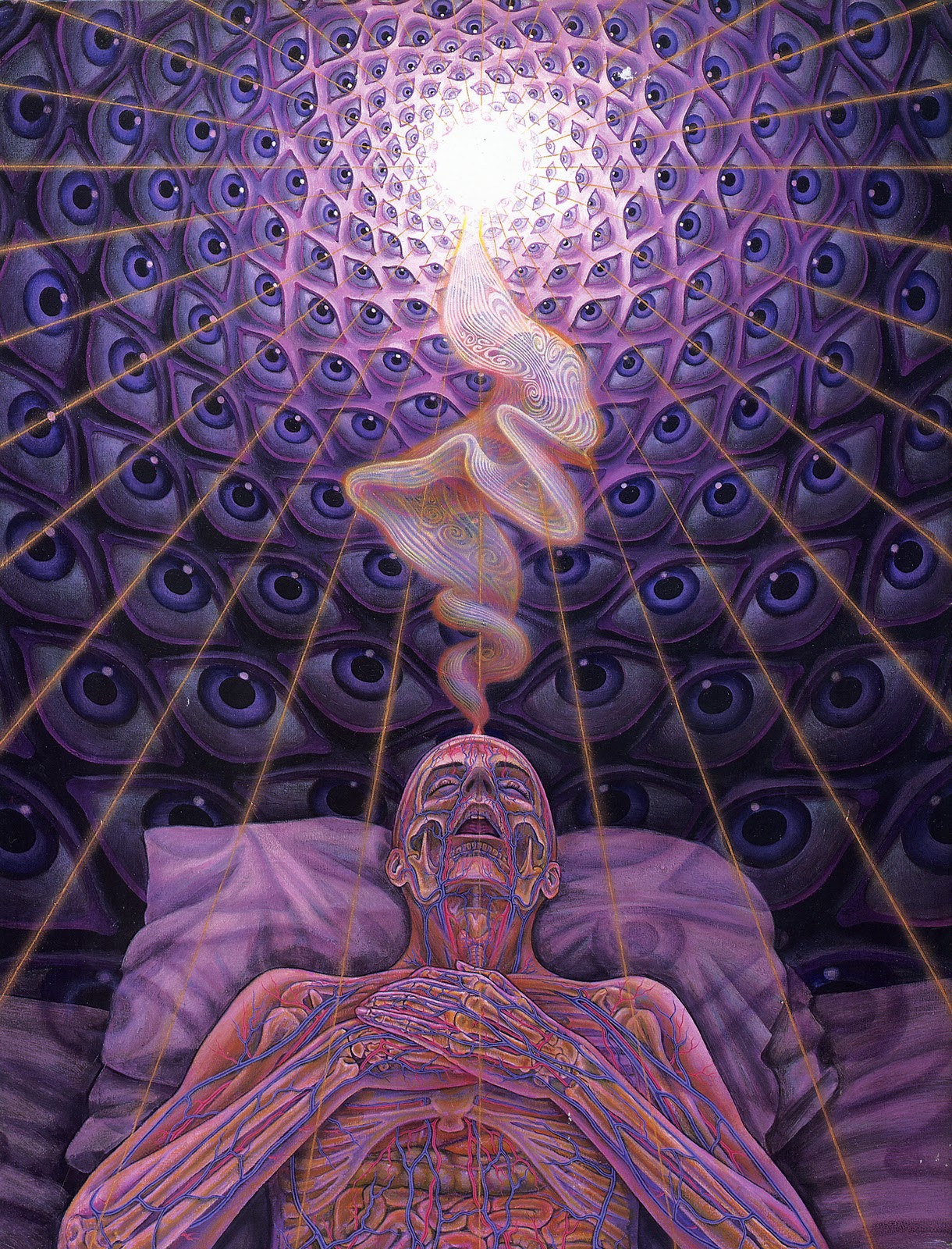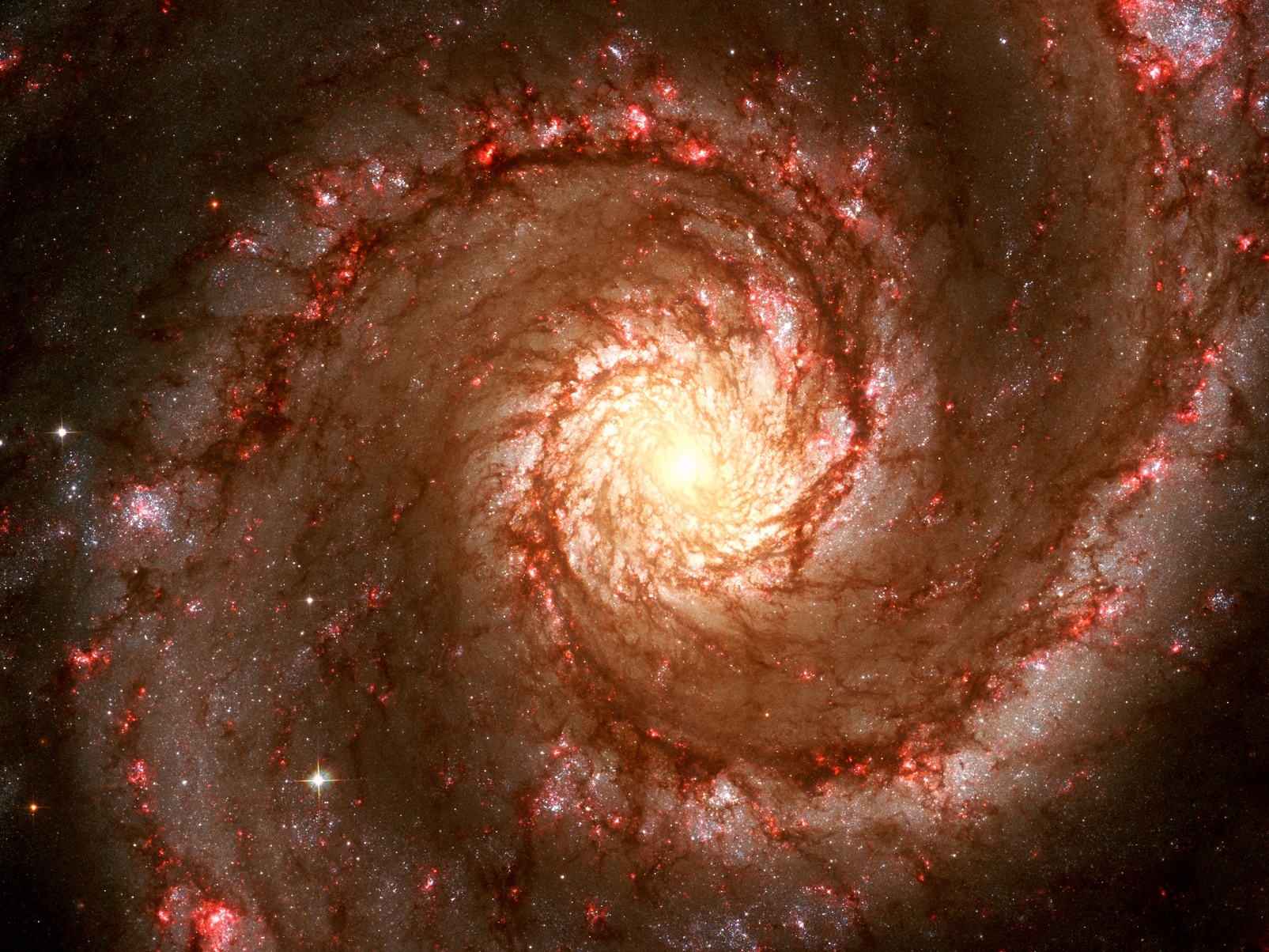Anyone that says voting is worthless is just cynical and proving nothing. While technically it is true that presidential elections are based on the electoral college (which is a fundamentally flawed system of rounding votes up and down), the important thing about voting is that ...
Q: How do you explain life?
Q: Atheists: How do you explain life?
I'm one of those rare breeds who believe equally in God and in Science... I evidently see evolution, and I can even go along with the Big Bang Theory, but how do you explain what makes us alive? Or ...
Q: We’re all essentially the same. Agree or disagree?
Q: We're all the same... essentially. Agree? Disagree? And, what evidence do you have to support your answer?
A: We have more in common with one another than anything else in the entire Cosmos. The genetic differences between every living human is less than the difference ...
Q: Why do things need to be black and white?
Q: Why do things need to be black and white?
I'm talking about logic & religion.
The religious and faithful have been called delusional, and the non-religious have been called logical. Why can't a person be smart, logical, and also have a belief in God? I do.
One ...
Q: Was religion an evolutionary advantage?
Q: Was religion an evolutionary advantage?
I haven't read anything on this topic... so sorry if this is nonsensical. During the beginnings of civilization and cultural development, did the introduction of religion offer any advantages to those who adopted the belief? I don't know much about ...
Q: What book motivates or influences you most in life?
Q: What book motivates or influences you most in life?
A: "Cosmos" by Carl Sagan was more influential to me than any book I've ever read. It reawakened the spirituality inside me, opened my eyes to the wonders of science, gave me a sense of self, ...
Q: What does your worldview say about cooperation & conflict, if anything?
Q: What does your worldview say about cooperation & conflict, if anything?
A: I am Gaian. I believe that everyone is intimately related, which is why we are so contentious at times. I believe we are connected to the Earth, and our actions directly affect our ...
Q: Should public display of hate be illegal?
Q: Should public display of hate be illegal?
A: Not only should it be legal, it should be highly publicized and ridiculed. Someone once asked Jerry Springer why he, a Jew, would give KKK members a platform to spread their hate to a national audience. His ...
Q: What is the meaning of death?
A: Organisms are giant machines, and they require a lot of energy. All day, every day, most organisms spend their time concerned with the consumption and excretion of biological material. And since they constantly reproduce, they are introducing more of these consumers into the environment.
Birth ...
Q: How does evolution explain why men tend to outperform women in mathematics and spatial reasoning?
Q: How does evolution explain why men tend to outperform women in mathematics and spatial reasoning?
A: Our species has a long biological heritage of men going out to do the hunting while the women stay at the camp to do the gathering. The men that ...
Q: Science does not have any morals, yet Atheists still worship science?
Q: Science does not have any morals, yet Atheist still worship science?
It seems futile and I don't understand. Why do you choose hell over the kingdom of God?
A: Science does not have any morals because science is not a religion. Mathematics and chemistry have no ...
The Yahoos at Yahoo! Answers
I have had the same Yahoo! account for over a decade. I mostly had it because I collect accounts at every major website. Most of Yahoo's services are crappy and nerfed, so I've never had much of a need for it. But about a month ...
Q: How come atheists are never haunted by ghosts or spirits?
Q: How come atheists are never haunted by ghosts or spirits?
A: We are! Everyone is! The difference is that some people recognize those fears as an irrational and natural part of our biological heritage, so we don't pay them much attention. Our imagination is a ...
Q: My friend won’t leave me alone about the fact that I’m Jewish but celebrate Christmas?
Q: My friend won't leave me alone about the fact that I'm Jewish but celebrate Christmas?
A: Christmas is not about Christ.
People give each other presents on Christmas. Is it to celebrate the birth of Jesus? Nope! It's because giving gifts to celebrate the winter solstice ...
Q: What’s with all of this animosity between Christians and atheists lately?
Q: What's with all of this animosity between Christians and atheists lately?
A: Lately? This crap has been going on for (literally) thousands of years. It just wasn't until the invention of the internet that we finally got to see the theism debate argued across the ...
Q: What do you guys NOT understand about Islam?
Q: What do you guys NOT understand about Islam?
A: Oh my gawd, this is like asking a cave man what he does not understand about quantum physics. If anyone gives you any grief, just send them this link: http://skepticsannotatedbible.com/quran/good/long.html
Why I Am Atheist
We are all born atheist. Once I hit my teenage years I became as devout of a Christian as I could possibly be. I went to church, prayed, and all the usual stuff. When I was in 10th grade I met a guy that had ...
Q: Ever heard of a Unitarian Universalist Muslim?
Q: Ever heard of a Unitarian Universalist Muslim?
A: It's not outside the realm of possibility. Unitarians don't demand anything from you or your beliefs, so someone could be *any* religion and still be a part of their church.
Q: Should being a Christian who believes in the rapture disqualify you to fly commercial airplanes?
Q: Should being a Christian who believes in the rapture disqualify you to fly commercial airplanes?
A: Yes. I believe that all people should be held to their beliefs, especially when they're ridiculous. I don't believe *anyone else* should be held to those beliefs, so don't ...
Q: Is Bill O’Reilly bipolar?
Q: Is Bill O'Reilly bipolar?
this guy realy creeps me out when he gets pissed at his guests
A: If he was bipolar we would have more examples of him completely losing it like he did early on in his career. What you're seeing now is mostly ...
Q: Do you think that ex-president Bush used religion in a manipulative way to gather support for the war in Iraq?
Q: Do you think ex-president Bush used religion in a manipulative way to gather support for the war in Iraq? Or do you think he's a delusional nutbag who has hallucinations? I know it sounds like a false dichotomy, but it really isn't: http://www.secularhumanism.org/index.php?section=library&page=haught_29_5
A: It ...
Q: Why has evolution programmed us to believe we have immortal souls?
Q: Why has evolution programmed us to believe we have immortal souls?
A: Because (in a sense) we do have immortal souls: our DNA. Every strand of DNA in every living cell of every organism is a genetic history lesson. We share our respiratory, circulatory, digestive, ...
Q: What are the chances of something happening to save us the embarrassment of another Bushtard in office?
Q: What are the chances of something happening to save us the embarrassment of another Bushtard in office?
A: We would have to endure eight full years of embarrassment. And considering the only embarrassment to our nation has come in the form of baseless accusations from ...
Q: If you had a spouse that claimed homosexuality was a choice?
Q: If you had a spouse that claimed homosexuality was a choice?
A: If my spouse claimed homosexuality was a choice I would immediately doubt their reasoning skills and seriously consider divorcing them. Then I would slap myself for not realizing their bigotry before I married ...
Q: Has anyone ever seen a ghost?
Q: Has anyone ever seen a ghost?
A: No one has ever seen a ghost. Our brains misinterpret the unknown by giving them more reality than they actually have. If there was any proof of ghosts we would've found in the several thousand years that humans ...
Q: Why do couples break up so easily?
Q: Why do couples break up so easily? When a husband and a wife disagree and argue, they divorce and they don't love eachother anymore. But when siblings fight or if someone argue with their parent, they still love eachother and value them as family. ...
Q: Is the human mind capable of grasping the universe?
Q: Is the human mind capable of grasping the universe?
A: I don't think the human mind is capable of fully understanding it, but only because we were not evolved for such advanced thinking. It doesn't make a difference in our lives whether or not we ...
Q: What is the email etiquette in this situation?
Q: What is the email etiquette in this situation?
I emailed my colleague who happens to have about 4 different email addresses. I used the one she was using a few months ago......but I have a feeling she doesn't check that one anymore. I sent the ...
Q: Why is it OK for Jews to hate Christians, but wrong for people to hate Jews?
Q: Why is it OK for Jews to hate Christians, but wrong for people to hate Jews?
A: It's not okay to hate anyone. People are hypocritical and they use their religion as justification. It's evil, no matter which way you slice it.
Q: Why the cross?
Q: Why the cross ??????
Evil is all around us. I get that. Why do people use , in my humble opinion , a negative symbol of Christ? A cross is what he was killed on. I don't want that around my neck. And what is ...
Q: If you could ask God any question, what would it be? and what would be the question that God asks in response?
Q: If you could ask God any question, what would it be? and what would be the question that God asks in response?
A: Eric: Why are you so explicit in the Bible but so silent in nature?
God: How would I get people to read my ...
Q: Atheists: Could you argue IN FAVOR of Theism?
Q: Atheists: Could you argue IN FAVOR of Theism?
This is more a poll about debate skills than principles. I know from my own debate experience that I rely on the rules of logic to form a sound argument. I also think that I can argue ...
Q: Should we interfere in the process of evolution?
Q: Should we interfere in the process of evolution?
Me and my friend were talking about baby sea turtles in which I told my friend that sometimes they die if seagulls or predators come and eat them on shore when their born. She then told me ...
Q: Isn’t the issue of the National debt just a wedge issue like abortions for the Republican propaganda machine?
Q: Isn't the issue of the National debt just a wedge issue like abortions for the Republican propaganda machine?
A: Our entire economic system is built and reliant upon debt. Without it, the system would collapse. Our debt can never be resolved, so it's easy to ...
Q: Fellow atheists, I really need some help?
Q: Fellow atheists, I really need some help on this one. I (against some recommendations by others) decided to take an opportunity to tell my mom about my “conversion” or should I say my “reversion” to atheism. She's fine with it. She had me tell ...
Q: Can someone tell me why men and women eat differently?
Q: Can someone tell me why men and women eat differently?
A: Though we are the same species, our differences in gender play a huge role in how our bodies use energy. Males tend to be larger and do more physical labor, so they tend to ...
Q: Are human rights in other countries something the American people, and govt, need to concern themselves with?
Q: Are human rights in other countries something the American people, and govt, need to concern themselves with?
A: Absolutely.
The United States the independent nation hasn't existed since December 7th, 1941. Since that time we have become the leading representation of the world's interests. Of course, ...
Q: How do I wake up in the morning without falling back to sleep?
Q: How do I wake up in the morning without falling back to sleep? I set my alarm 5 times in the morning: 4,5,6,6:30,and 7. I feel so tierd in the morning I use to be able to get up straighten my hair do my ...
Q: Why is the sky orange sometimes?
A: The visible spectrum of light goes from the infrared to the ultraviolet. The waves of the infrared are stretched out and move slower than the compressed and faster-moving light on the ultraviolet side. When sunlight (which is slightly yellow) hits our atmosphere, it is ...
Q: Does anyone know what percent of humans will one day be fossils?
Q: Does anyone know what percent of humans will one day be fossils?
in a debate with a creationist. I remember hearing it at one point its microscopic.
A: It would be hard to pin down a number but just consider this...
Dinosaurs existed for hundreds of millions ...
Q: Do you believe heaven is more like a Socialist or Capitalist system?
Q: Do you believe heaven is more like a Socialist or Capitalist system?
A: Heaven is far more like socialism than capitalism. After all, socialism simply means a system in which everyone shares. And in heaven, everyone has all they need, so money is irrelevant. But ...
Q: Do limbaugh supporters realize these things?
Q: Do limbaugh supporters realize these things?
1) he has no education, why would you put so much stock in a college dropout. 2) he ducked military service. 3)has 3 failed marriages 4)was drug addicted 5)has made millions dividing this country stirring up hate and racist ...

